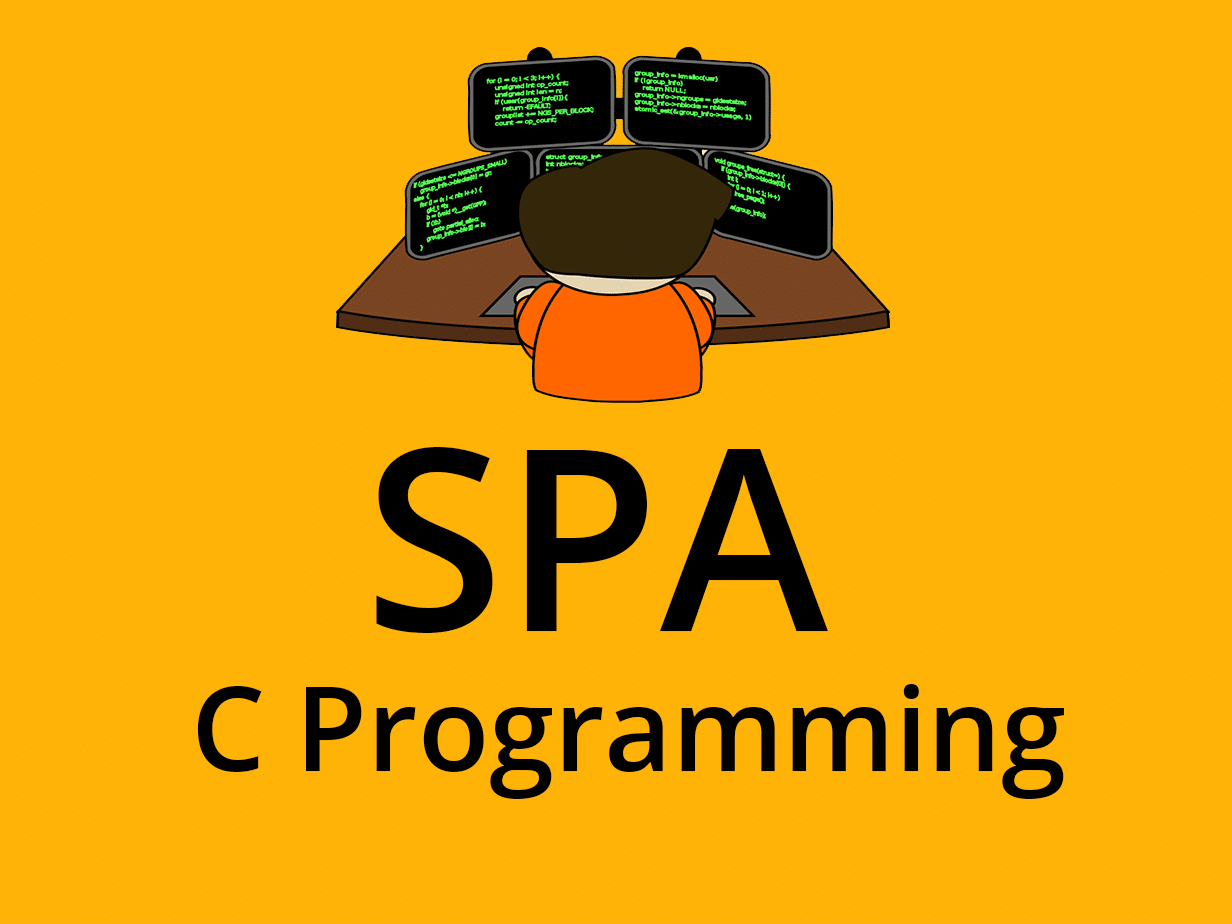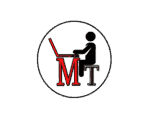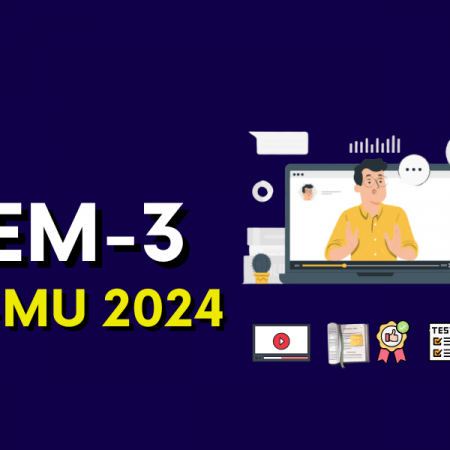SPA (Structured Programming Approach)
Free

-
INDEX
- Introduction to SPA
- Algorithm and Flowchart
- Introduction to C and HLL
- Starting with a C Programming language
- Data Types in C programming Part #1
- Data Types in C programming Part #2
- Execution of C program
- Input Output Functions in C
- ALL Operators in C Programming Part #1
- ALL Operators in C Programming Part #2
- For Loop in SPA/C Programming
- Important Programs Explained of SPA / C Part #1
- Important Programs Explained of SPA / C Part #2
- For Loop Most Important Programs
- Find Sum of Series with Solved Example
- Nested For Loops in SPA / C Programming
- Patterns in SPA/C Programming Part #1
- Patterns in SPA/C Programming Part #2
- Flowchart in C
SPA (Structured Programming Approach)
SPA (Structured Programming Approach) is semester 2 subject in first year of engineering under Mumbai University. Objectives for the subject Structured Programming Approach to familiarize the logic of structured programming approach.
To provide exposure in developing algorithm, flowchart and thereby writing efficient codes for user defined problem. Outcome for the subject Structured Programming Approach Learner will be able to illustrate the basic terminology used in computer programming. Illustrate the concept of data types, variables and operators using C. Design and Implement control statements and looping constructs in Apply function concept on problem statements. Demonstrate the use of arrays, strings, structures and files handling in C. Demonstrate the dynamics of memory by the use of pointers to construct various data structures.
C is a general-purpose, procedural computer programming language supporting structured programming, lexical variable scope, and recursion, with a static type system. By design, C provides constructs that map efficiently to typical machine instructions. It has found lasting use in applications previously coded in assembly language. Such applications include operating systems and various application software for computer architectures that range from supercomputers to PLCs and embedded systems. A successor to the programming language B, C was originally developed at Bell Labs by Dennis Ritchie between 1972 and 1973 to construct utilities running on Unix. It was applied to re-implementing the kernel of the Unix operating system. During the 1980s, C gradually gained popularity. It has become one of the most widely used programming languages, with C compilers from various vendors available for the majority of existing computer architectures and operating systems. C has been standardized by the ANSI since 1989 (ANSI C) and by the International Organization for Standardization (ISO). C is an imperative procedural language. It was designed to be compiled to provide low-level access to memory and language constructs that map efficiently to machine instructions, all with minimal runtime support. Despite its low-level capabilities, the language was designed to encourage cross-platform programming. A standards-compliant C program written with portability in mind can be compiled for a wide variety of computer platforms and operating systems with few changes to its source code. In computer science, a data structure is a data organization, management, and storage format that enables efficient access and modification. More precisely, a data structure is a collection of data values, the relationships among them, and the functions or operations that can be applied to the data.
Module Introduction to Computer, Algorithm and Flowchart consists of the following subtopics Basics of Computer: Turing Model, Von Neumann Model, Basics of Positional Number System, Introduction to Operating System and component of an Operating System. Algorithm & Flowchart: Three construct of Algorithm and flowchart: Sequence, Decision (Selection) and Repetition.
Module Fundamentals of C-Programming consists of the following subtopics Character Set, Identifiers and keywords, Data types, Constants, Variables. Operators-Arithmetic, Relational and logical, Assignment, Unary, Conditional, Bitwise, Comma, other operators. Expression, statements, Library Functions, Preprocessor. Data Input and Output – getchar( ), putchar( ), scanf( ), printf( ), gets( ), puts( ), Structure of C program . Module Control Structures consists of the following subtopics Branching – If statement, If-else Statement, Multiway decision. Looping – while, do-while, for Nested control structure- Switch statement, Continue statement Break statement, Goto statement. Module Functions and Parameter consists of the following subtopics Function -Introduction of Function, Function Main, Defining a Function, Accessing a Function, Function Prototype, Passing Arguments to a Function, Recursion. Storage Classes –Auto , Extern , Static, Register. Module Arrays, String Structure and Union consists of the following subtopics Array-Concepts, Declaration, Definition, Accessing array element, One-dimensional and Multidimensional array. 5.2 String- Basic of String, Array of String , Functions in String. Structure- Declaration, Initialization, structure within structure, Operation on structures, Array of Structure. Union – Definition, Difference between structure and union , Operations on a union. Module Pointer and Files consists of the following subtopics Pointer Introduction, Definition and uses of Pointers, Address Operator, Pointer Variables, Dereferencing Pointer, Void Pointer, Pointer Arithmetic, Pointers to Pointers, Pointers and Array, Passing Arrays to Function, Pointers and Function, Pointers and two dimensional Array, Array of Pointers, Dynamic Memory Allocation. Files: Types of File, File operation- Opening, Closing, Creating, Reading, Processing File.
Suggested Texts Books for the subject Structured Programming Approach by Mumbai University are as follows “MASTERING C” by K.R.Venugopal and SudeepR.Prasad , Tata McGraw-Hill Publications.“A Computer Science –Structure Programming Approaches using C ”, by BehrouzForouzan , Cengage Learning .Schaum’s outlines “Programming with C”, by Byron S. Gottfried, Tata McGraw-Hill Publications. References Books for the subject Structured Programming Approach by Mumbai University are as follows “Basics of Computer Science”, by BehrouzForouzan , Cengage Learning .“Programming Techniques through C”, by M. G. Venkateshmurthy, Pearson Publication.“Programming in ANSI C”, by E. Balaguruswamy, Tata McGraw-Hill Education.“Programming in C”, by Pradeep Day and Manas Gosh, Oxford University Press. “Let Us C”, by YashwantKanetkar, BPB Publication.
Prepare For Your Placements: https://lastmomenttuitions.com/courses/placement-preparation/
![]()
/ Youtube Channel: https://www.youtube.com/channel/UCGFNZxMqKLsqWERX_N2f08Q
Follow For Latest Updates, Study Tips & More Content!
Course Features
- Lectures 19
- Quizzes 0
- Duration 50 hours
- Skill level All levels
- Language English
- Students 946
- Certificate No
- Assessments Yes



